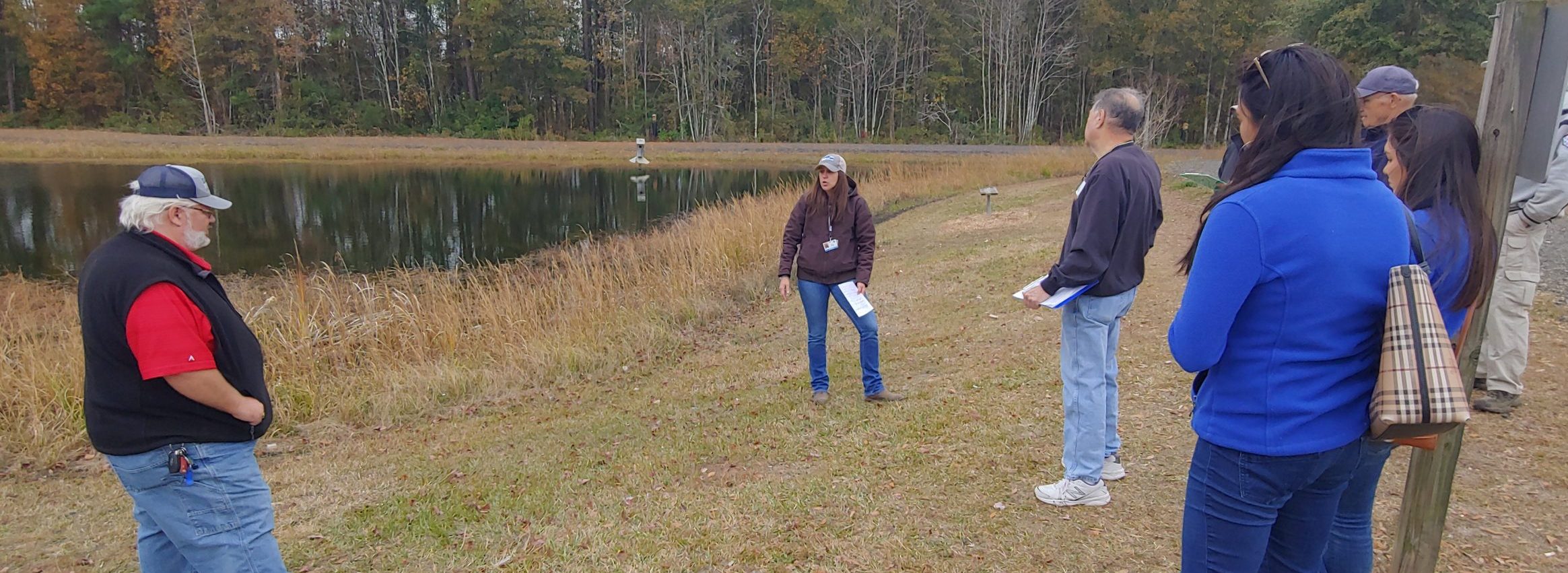When you gaze out over a pond, there is more going on beneath the surface than meets the eye. You might be enjoying the relaxing views, the ducks and turtles, or the space to walk along the shorelines. However, below the water, biogeochemical processes are hard at work. For the most part, ponds are not naturally occurring features along the South Carolina coast. In fact, stormwater ponds are engineered structures designed to perform specific jobs. Stormwater ponds are built to control stormwater runoff, protect downstream water quality, and prevent flooding. However, ponds require proper management to provide these important functions. The Grand Strand Healthy Pond series is an educational program helping local communities take a deeper dive into pond management.
The Grand Strand Healthy Pond Series is an opportunity for HOA/POA representatives, pond owners, and pond managers to increase their knowledge of pond management best practices. This community-based discussion series will provide a way for pond owners to learn, connect, and share. The series is organized by the North Inlet – Winyah Bay NERR, Clemson Extension, and S.C. Sea Grant Consortium.
The series was launched with virtual programs in 2020. Participants have learned about topics including shoreline erosion, wildlife issues, and the importance of nutrient management. These workshops have included science and data to inform decision-making, strategies for implementing best practices, and resources on who to contact for more information or for professional pond management services.
Most recently, the Healthy Pond Series hosted a Pond Inspection 101 workshop. Conducting pond inspections – by walking around the pond in question and making observations of potential issues – is an important aspect of regular pond maintenance. The Horry County Stormwater Department partnered to share their knowledge of pond maintenance at the Horry County South Strand Recreation Facility. Learning this skill requires some hands-on experience, so we were excited to get out into the field and visit a pond in person! Participants were guided through the process with a pond inspection form. They looked for possible damage to inlet and outlet structures, checked for signs of excess algae growth, and assessed whether shorelines were eroding. Noting pond issues before they become worse can prevent expensive repairs. It was great to get out in the field and to share skills that participants could take back to ponds in their communities.
Sign up to receive notifications about future pond education and other training opportunities here: https://northinlet.sc.edu/ctp-newsletter/



